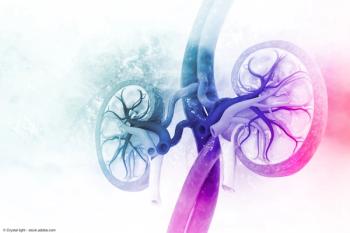
Lifestyle impacts fertility in formerly cryptorchid men
San Francisco--Lifestyle factors may play a role in fertility among formerly unilateral cryptorchid men who have demonstrated fertility, according to a study reported at the American Academy of Pediatrics Section on Urology annual meeting here.
San Francisco- factors may play a role in fertility among formerly unilateral cryptorchid men who have demonstrated fertility, according to a study reported at the American Academy of Pediatrics Section on Urology annual meeting here.
Tobacco use, body mass index, and frequency of intercourse all influenced factors associated with fertility. Some of the same lifestyle characteristics also affected fertility indicators in a control group that also had demonstrated fertility, reported researchers from Penn State Hershey Medical Center in Hershey, PA.
The findings came from a study that compared the impact of lifestyle factors on fertility in 46 formerly unilaterally cryptorchid men and 47 control men. All had demonstrated their fertility, reported Peter Lee, MD, PhD, a professor of pediatric endocrinology at Penn State.
A subset of men in the study provided blood and semen samples. Serum samples were analyzed for concentrations of testosterone, free testosterone, inhibin B, FSH, and LH. Sperm characteristics analyzed were sperm density, percent normal motility, and percent normal morphology.
Among the fertile formerly cryptorchid men, regular smoking had an impact on fertility factors. Regular smokers had lower values for free testosterone (p=.018), LH (p=.037), and frequency of intercourse (p=.012). A BMI of greater than 30 was associated with lower testosterone levels (p=.001) and lower sperm density (p=.006).
Correlation analysis demonstrated a statistically significant positive correlation between testosterone and frequency of intercourse (p=.027) in the formerly cryptorchid men. The analysis also revealed statistically significant negative correlations between BMI and inhibin B (p=.046) and between BMI and LH (p=.047).
In the control group, free testosterone had a positive correlation with frequency of intercourse (p=.012). BMI had a negative correlation with percent normal sperm motility (p=.018).
"Among fertile formerly cryptorchid men, smoking was associated with de-creased LH, free testosterone, and frequency of intercourse," Dr. Lee concluded. "It is interesting that in the cryptorchid group, this relationship may be unmasked in a group that has compromised fertility in contrast to the control group."
Increased BMI and decreased frequency of intercourse had a potentially negative impact on fertility in both the cryptorchid men and the control group, he added.
Newsletter
Stay current with the latest urology news and practice-changing insights — sign up now for the essential updates every urologist needs.






